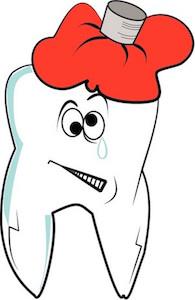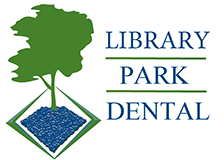If You Have a Tooth Ache, What Can You Do While You’re Waiting to See the Dentist?

Call the dentist promptly if you can see a crack or a break in a tooth or if you have swelling.
Sometimes people try to “wait it out” or see if they can fix things on their own. Oftentimes that means that what was a small problem becomes bigger, or a small infection turns into a larger one. We would rather replace a broken filling than have to give you the news that a crown is needed because too much time elapsed. Swelling usually indicated an infection that needs to be treated promptly. The dentist will be able to determine why there is an infection and what the best treatment option would be in your case.
Clean Your Mouth Carefully
Begin by flossing your teeth. Sometimes there are bits of food or a seed that is caught in between teeth. Make sure that the floss gets all the way to the gumline and that you sweep the floss away from the gum to remove any particles.
Then you can brush your teeth carefully. Brush for two minutes, and use a toothpaste designed for sensitivity. These pastes will help to either soothe nerves inside teeth or block the tubules in the dentin. Don’t use a toothpaste that is designed for teeth whitening if you already have a toothache. Some people develop a sensitivity to that toothpaste and their teeth begin to ache after using those treatments.
Finally, rinse your mouth. You can use a mouthwash or warm salt water. The rinse will help to remove any particles that have been dislodged earlier.
Rinse with Warm Salt Water Twice a Day
Place a teaspoon of salt in a cup of warm water. Swish the saltwater around for about 30 seconds and then spit it out. Repeat until the entire cup of warm water is gone. Do this a couple of times a day. This will help to dislodge any particles that may be lodged under the gums and it also helps to draw out some of the fluid that causes swelling.
Use Medication If Approved by Your Doctor
If you are medically able, a non-steroidal anti-inflammatory like Ibuprofen will help to reduce inflammation and should help with the pain. Tylenol is a pain reliever that may also help.
Call the Dentist to Be Seen Quickly so We Can Help You!
We are concerned about your oral health. We don’t want you to have a toothache and we want to help figure out the cause and the treatment. Call Library Park Dental in Kenosha today!
